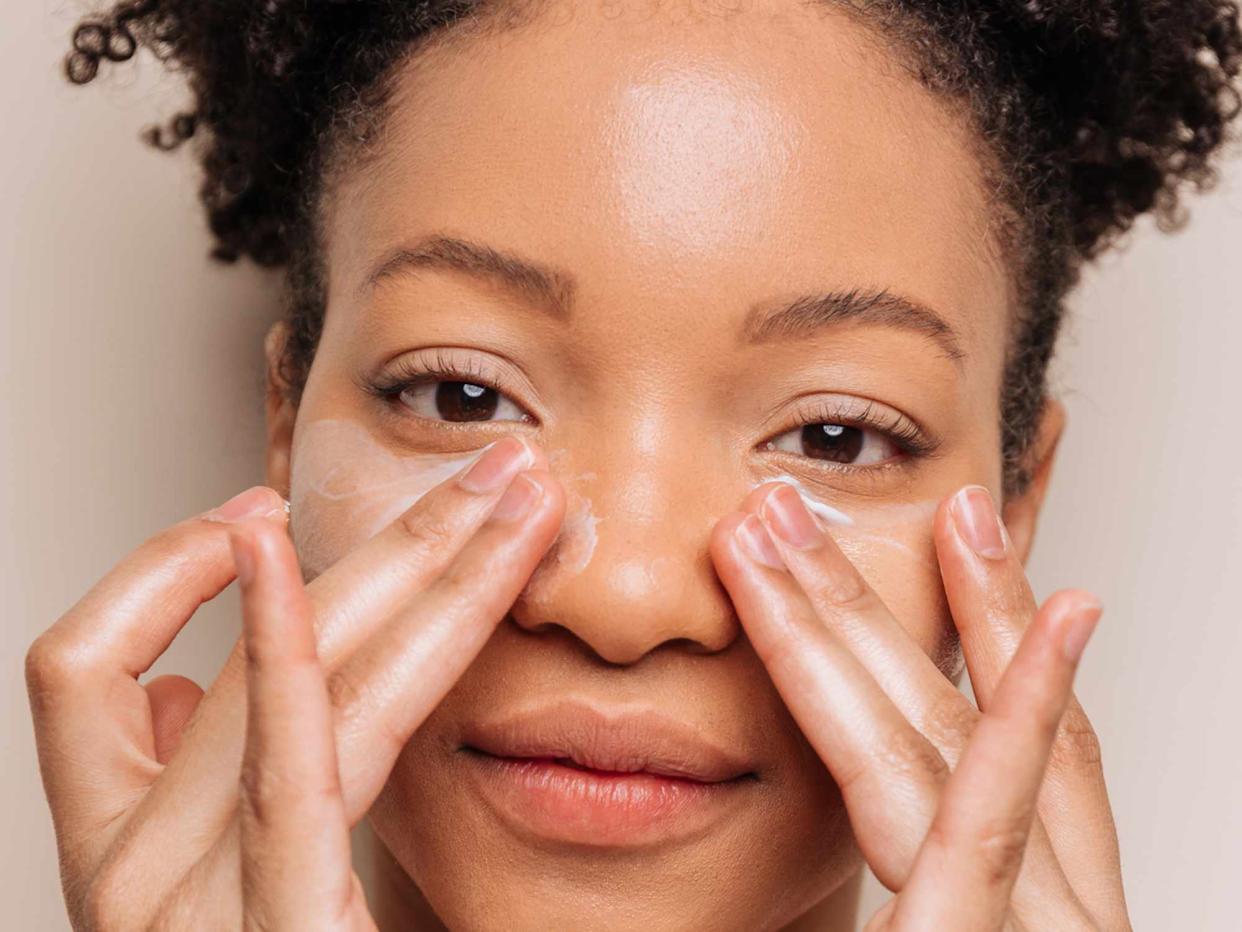Should You Pop Your Blackheads? Derms Explain How to Remove Them Safely

Brat Co/Stocksy
Blackheads—just about everybody's got them. Whether your T-zone is riddled with them or you have an occasional few crop up around your nose, this pesky complexion concern is as common as they come. The other universal thing about blackheads? The desire to pop, squeeze, and pick at them. Trust us, we get it: Popping blackheads is both incredibly tempting and can be incredibly satisfying. But the hard truth of the matter is that it won't do your skin any favors and, long story short, experts strongly advise against it. Keep reading to learn more why dermatologists say you shouldn't pop your blackheads, plus their approved methods to try instead—both to prevent blackheads and to get rid of them when they do occur.
Meet the Experts
Melanie Palm, MD, MBA, is a board-certified dermatologist, cosmetic surgeon, and the founder of Art of Skin MD in Solana Beach, California.
Dustin Portela, DO, is a board-certified dermatologist and dermatologic surgeon at Treasure Valley Dermatology in Boise, Idaho.
What Are Blackheads?
"A blackhead is an open comedone—a pore or hair follicle that has been clogged with sebum, dead skin, and bacteria," explains board-certified dermatologist Melanie Palm, MD. "In blackheads, the comedone has been exposed to air, which oxidizes trapped oil and dead skin cells and gives the clogged pore a dark brown or black color." This is notably different from other types of acne, like whiteheads (which are closed comedones) and inflammatory acne (such as pimples and cystic breakouts).
Should You Pop Blackheads?
While popping blackheads may be tempting, all the experts we spoke with told us that you shouldn't give in. "I don't recommend extracting or popping blackheads, as tempting as it may be," advises board-certified dermatologist Dustin Portela, DO. "Doing so can actually make the blackhead worse, not not to mention cause pain, scarring, and further irritation." That said, seeing an experienced professional (like a licensed esthetician) who is trained in proper blackhead extraction is totally fine—not doing it properly is what's problematic, Palm notes. If you absolutely can't resist the urge, she suggests using (clean) fingers wrapped in a tissue for at-home extractions, rather than extractors or other devices, which can puncture and scar the skin.
How to Prevent Blackheads
"Blackheads are caused by clogged pores, so prevention is all about keeping your pores unclogged," Palm says. In order to do so, the simplest, easiest, and most important thing you can do is simply keep your skin clean. "Wash your face twice per day, as well as after excessive sweating," Portela explains. "This will keep both oils and dead cells from building up inside the hair follicles." You can use your regular cleanser, or one that contains an exfoliating ingredient such as salicylic acid—we like the CeraVe SA Salicylic Acid Cleanser ($11).
Make sure you're exfoliating regularly, too. Both derms we spoke with advise chemical exfoliants, such as retinoids, glycolic acid, and, again, salicylic acid. These are gentler than physical exfoliants like scrubs, so you can prevent and treat blackheads without causing unnecessary damage to your skin.
How to Remove and Treat Blackheads
Portela recommends exfoliating two to three times per week to help remove existing blackheads. Just like with prevention, salicylic acid is a standout choice here. "This beta hydroxy acid is superior for treating blackheads because it is folliculotropic, which means it can penetrate down the hair follicle and oil gland and get to where the blackheads start," Palm says. From there, it can break down and dissolve the excess oil that contributes to clogging. Find it in the Cetaphil Gentle Clear Triple-Action Acne Serum ($15).
Retinoids are another good choice for treating blackheads, as they balance out how the oil gland in the hair follicle empties, Palm adds. She advises using an adapalene gel, like the Differin Acne Treatment Gel ($13). Just keep in mind that these ingredients can make your skin more photosensitive, so it’s more important than ever to use a broad-spectrum sunscreen with at least SPF 30 every single day.
If you need an extra removal boost, Portela says pore strips (like the Biore Deep Cleansing Pore Strips, $9) are okay to use—so long as you only do so once or twice per month. They can be abrasive on the skin (along with adhering to and removing blackheads, they also take off some of the skin cells), so overuse can cause irritation. Keep in mind that while they are a great quick fix, if you're not using the aforementioned prevention plan for keeping pores clear, those blackheads ultimately will come back after you strip them away.
The Final Takeaway
While blackheads can be frustrating and we understand the temptation to pop them, you should leave the manual removal of them to the pros, as trying to pop blackheads yourself can cause further damage to your skin. Instead, incorporating exfoliating products with retinoids or salicylic acid into your at-home skincare routine—and yes, the occasional pore strip if you want—is your best bet.
Up Next: 6 Ways to Get Rid of Blackheads, According to Experts

